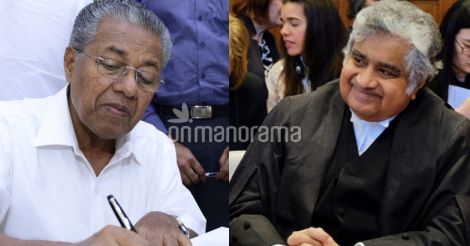Kochi: Kerala chief minister Pinarayi Vijayan may be spared a political trial in the SNC-Lavalin case after the quashing of a review petition by the CBI on Wednesday but the legal procedures could linger for a while.
The Kerala High Court quashed a petition by the investigation agency challenging the acquittal of the CPM leader by a special court. Vijayan is no longer an accused in the case. The CBI could go in appeal before the Supreme Court but the chief minister and the CPM have scored big time.
Pinarayi's counsel Harish Salve pulled it off by projecting the case as a dispute related to a commercial agreement with a foreign corporation.
The CBI, represented by additional solicitor general M K Natarajan, argued that the special court had acquitted the accused without a trial. Natarajan said that the agency had evidence of a conspiracy at various stages of the contract and a trial was necessary to bring out the roles played by each of the accused.
Salve, however, argued that the charge sheet prepared by the CBI was bereft of facts to prove that Pinarayi had any role in the alleged conspiracy. The Prevention of Corruption Act was not applicable in the case because no one had gained anything undeserving from the deal. Salve said that Pinarayi was not accused of making any monetary gain from the deal.
Salve also pointed out that the then chief minister E K Nayanar would also be an accused going by the CBI's logic. Nayanar and his finance minister had approved the file related to the deal with the Canadian company. Yet the CBI has selectively accused the persons responsible for the deal.
Pinarayi was the electricity minister in the Nayanar government when the government-run Kerala State Electricity Board (KSEB) contracted SNC-Lavalin to refurbish three hydro-electric projects in the state.
The initial memorandum of understanding was signed in 1995, a year before Nayanar and his team were sworn in. Salve wanted to know how could Pinarayi be accused in the case when he had been a minister for only two years.
The MoU was signed on August 10, 1995, when Congress leader G Karthikeyan was the electricity minister. He had even gone to Canada to negotiate the deal. Still he was left out from the accusations.
KSEB chairman V Rajagopal was involved in all decision-making yet he is not an accused in the case. If the chairman is not an accused, how can anyone else be, Salve asked. He also said that the CBI's claim that the government had bypassed the tender process was a figment of imagination. The CBI has selectively used documents to cook up the case, he said.
A severe electricity shortage in Kerala had called for upgrade of Panniyar, Chenkulam and Pannivasal projects and SNC-Lavalin was chosen for its track record. The government, not the KSEB, signed a contract with the company to provide a grant for the Malabar Cancer Center.
Pinarayi visited Canada in October 1996 whereas the company had already started operations in Kerala in February in accordance with the contract.
Salve also refuted the CBI claim that there was no feasibility study related to the projects. The project was preceded by a feasibility report and technical report prepared by top officials. Though the Kuttiyadi power project was similar to the three projects, nobody smelled anything foul in the project, Salve said.
Pinarayi went to Canada for additional talks related to the projects. The charge sheet accuses Pinarayi of conspiring with the Canadian company but it does not say anything about a bargain or negotiation. The Canadian agency was approached for funding because the World Bank refused to participate in the project.
The charge sheet does not put a figure to the perceived loss to the exchequer. The evaluation based on the report of the comptroller and auditor general is not reliable. An upgrade project could not be evaluated as accurately as a building project, he said.
Read more: Latest Kerala news | Hadiya's father says Rahul Easwar betrayed the family

























 Pinarayi Vijayan, Harish Salve
Pinarayi Vijayan, Harish Salve
